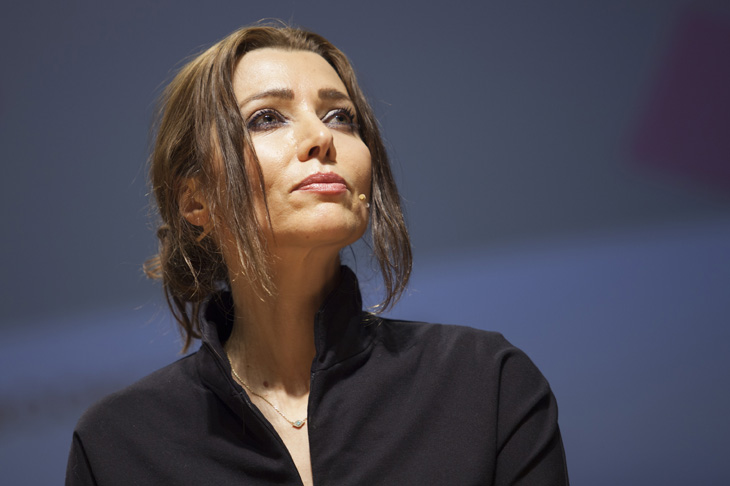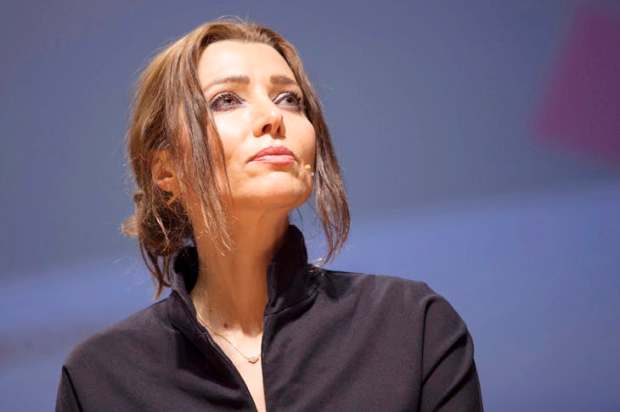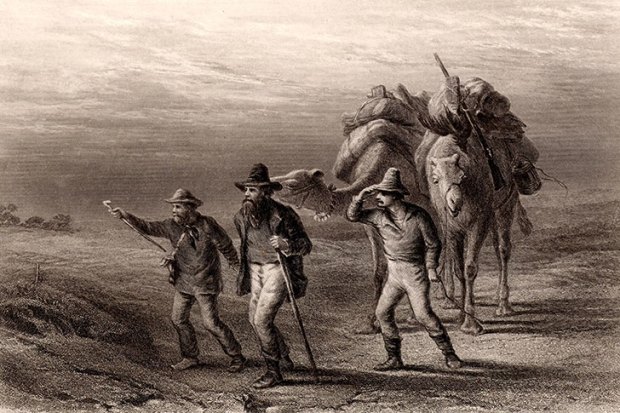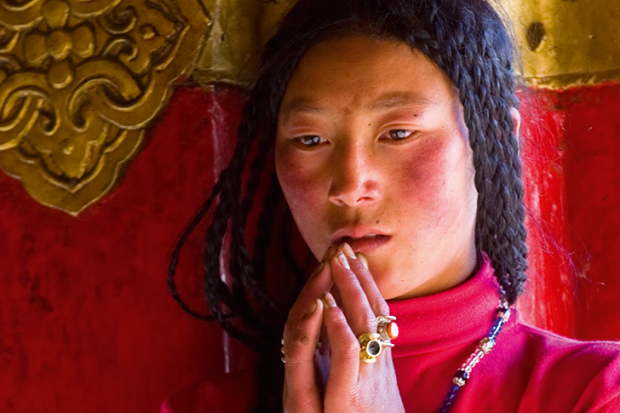It’s terribly difficult to write a novel about soul-searching, and Elif Shafak has come up with a rather clever device to do so: Peri grows up in Istanbul listening to her parents fighting about religion. Solemn, naive and tortured, she gets a place at Oxford, where she makes friends with Mona, who wears a headscarf and feels persecuted, and Shirin, who enjoys drinking and sex and says things like ‘We Muslims are going through an identity crisis. Especially the women…Eat your heart out Jean-Paul Sartre! Get a load of this! We have an existential crisis like you’ve never seen!’ They all study under the handsome and wayward Professor Azur, who gives seminars about God. The scene is set for a romantic crisis. Fourteen years later, Peri has a violent encounter with a tramp that brings it all back.
Shafak is an international pin-up: Three Daughters of Eve is her tenth novel, but she’s also a founding member of a foreign affairs thinktank, has an active role at the World Economic Forum, defends gay rights and has been prosecuted by the Turkish government. People on Twitter adore her. This is a very serious book and in it she deals with enough vexed themes to qualify as a UN special envoy.
Peri keeps a diary where she writes down her feelings about God. She’s constantly having thoughts like this: ‘Was religion an empowering force for women who otherwise had limited power in a society designed for and by men, or was it yet another tool for facilitating their submission?’ That’s how she lives, question after agonised question.
The young people she talks to are just as brooding. In Professor Azur’s class she meets a staunch atheist who quotes Ernest Hemingway, an Irish Catholic who’s there to broaden her perspective, a Jewish boy who wants to foster religious dialogue, a British Indian whose motto is ‘Your idea of you creates your reality’, and so on. Peri suspects the professor has chosen them specially to create arguments, but actually the same could be said of the author. Every character in the book slots neatly into one side or another of an argument. It’s like an edition of the phone-in show World Have Your Say. They’re ideally cast for a passionate debate on religion, identity and feminism, but all the intellectual sparring rather jostles out the other little details that might help us believe in the characters and worry about their welfare.
It’s odd because in her Ted talk (watched more than 1.6 million times), Shafak complains about the way critics expect her to be a representative of her own culture and only write about Muslim women. She talks a lot about the freedom that fiction gives her to get away from what she calls identity politics. Reading Three Daughters of Eve, it’s hard to believe she started with the story, rather than the thematic baggage that rather weighs it down. But perhaps she just wanted to shut us all up.
Got something to add? Join the discussion and comment below.
Get 10 issues for just $10
Subscribe to The Spectator Australia today for the next 10 magazine issues, plus full online access, for just $10.
You might disagree with half of it, but you’ll enjoy reading all of it. Try your first month for free, then just $2 a week for the remainder of your first year.














Comments
Don't miss out
Join the conversation with other Spectator Australia readers. Subscribe to leave a comment.
SUBSCRIBEAlready a subscriber? Log in